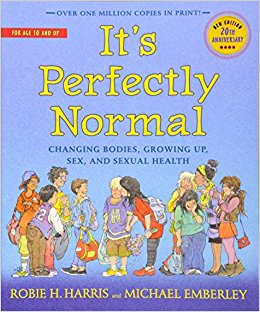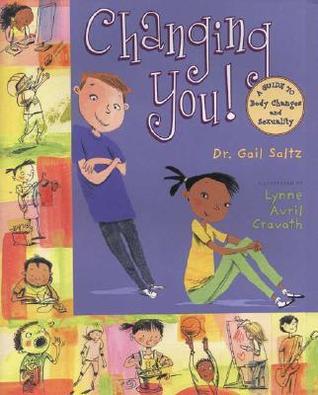Taking Care of Your Body During Puberty
This video talks to youth about how they can take care of their body during puberty, a time when their hormones are quickly changing, causing them to experience some new physical changes such as body odor, acne and hair growth. [AMZ-100]
Youth
It’s a fact of life that bodies, for a whole host of reasons, can have a strong odor. You may be more aware of this as your body goes through puberty—the changes that happen when your body goes from a child to a young adult. These changes include increased hormone production, body oil secretion and body hair growth. It’s these changes that can cause a person to smell more than they used to or to experience things, like acne.
Because of all the effects these changes can have on the body, it’s very important to create and practice good hygiene habits, even more than you might have when you were younger. Taking regular showers or washing up, using deodorant consistently, and being sure to wear a fresh set of clothes each day can go a long way toward managing strong odors. Using perfume, cologne or body spray may be a good way to try out new scents on the body as well. Just be sure to use them only after you shower and avoid putting on a lot, as too much can be overpowering to others, even if it smells good.
If you’ve started your menstrual period as part of your puberty process, being sure to change your pads, tampons, cups and/or other menstrual products in a timely fashion is also very important. Gentle daily face-cleaning, along with exercising, drinking lots of clean water and staying away from excessive junk food (candy, sodas/juice, fried chips, etc.) can help reduce menstrual cramps and keep pores clear from acne. That said, it is possible you may still need professional help, if pimples don’t go away easily. For special cases of acne, skin care professionals, like dermatologists, may prescribe creams or other treatments that are stronger than treatments you find in a drugstore.
Puberty can produce many different feelings, including wonder, awe, curiosity and discomfort—even anxiety. That said, the changes of puberty and feelings about those changes are very normal, even if they don’t always feel good when they happen. When uncertainty arises, reach out to trusted older peers and adults for support and strategies for making sure you always look and feel your best.
FAQs
Body hair is a common part of puberty for many, if not most people. Besides on the head, body hair may grow in a number of others places, including the face, chest, arms, legs, under the armpits, in the pubic area and over the genitals. For those who have body hair, it can help keep a person’s body temperature steady, and keep dust, debris and germs from entering and causing harm to the body. Some people, however, may choose to cut or shave their body hair off, without experiencing any major problems as a result.
Acne occurs when a person has a considerable number of pimples. Pimples may be small red bumps, bumps filled with pus (whiteheads) or pores blocked with solidified oil and dead skin with a dark surface color (blackheads). Acne is usually found on the face, though it can also appear on the neck, chest, back and even near the groin or genitals. The body’s increased oil production and changes in hormones during puberty, especially during the beginning of the menstrual cycle, may cause acne to appear. There are many different treatments for acne that can be found at a regular drugstore. Beyond this, it’s important to avoid touching or squeezing pimples, as doing so increases inflammation and could cause scarring of the skin. If acne is especially troublesome, skin care professionals, like dermatologists, may prescribe creams or other treatments that are stronger than treatments you find in a drugstore.
Showering and body washing are how people can best remove sweat, dirt and other buildup that may have accumulated over the day. When a person doesn’t shower, sweat and dirt eventually build up on the body, and the person will develop a strong odor. Taking regular showers will limit strong body odor. Daily showers may not be right for a person with especially dry or sensitive skin or conditions like psoriasis or eczema. Some scientists report that over-showering can cause skin problems. It is very important, however, to find the right balance for your body’s needs.
Parents
Next to infancy, puberty is the stage responsible for producing the most rapid and significant body changes of the life cycle. Beginning anywhere between ages 9 and 15, puberty typically includes increased height, weight and body hair; sperm production; deepening of the voice; emergence of breasts; and menarche, the first menstrual cycle. Increased hormone and oil production also often lead to increased body odor and/or acne.
Odor produced during puberty can occur all over the body, but most noticeably under the arms, from the feet and from the genital area. Increases in sweat mixed with naturally occurring bacteria on the skin along with dirt and dead skin that get trapped in armpit and pubic hair cause body odor. Body odor can be easily managed through intentional and deliberate hygiene practices, including regular showers/body washing and using a quality deodorant and/or antiperspirant. Children may also wish to experiment with colognes and body sprays as a way to cover up body odors or try out new scents. This can be fun, but children must be reminded to use them only after washing and to avoid using excessive amounts, as too much can be overpowering to others.
During puberty, acne can also occur on the face, neck and chest areas. Acne can usually be controlled through drinking clean water, eating a healthy diet and over-the-counter treatments, if necessary. In persistent acne cases, however, a dermatologist or other skin care professional may need to be consulted.
The changes young people experience during puberty can produce a mix of emotions, including anxiety and embarrassment. Parents and caregivers play a significant role in affecting how young people view their puberty experience. It is important for caring adults to explain the changes of puberty to their children before and while they are going through them. It is also essential to assure them that these changes are normal.
While parents and caregivers can share their beliefs and suggestions for hygiene management, they should avoid imposing their hygiene practice as the sole way of taking care of the body. As well, it is possible that children will have occasional missteps while developing and maintaining their hygiene practice. In those cases, it is also important for parents and caregivers to avoid stigmatizing children’s behavior, allowing them space to develop and perfect a practice that works best for them.
CONVERSATION STARTERS
When parents and caregivers engage in loving and supportive conversations with children about the puberty process, it allows children to practice hygiene in ways that avoid feelings of shame and self-judgment. Bringing up puberty as a topic even before it happens can be a useful way to let your child know that you are available for any questions or concerns they may have once puberty begins.
In some cases, children may come to you for assistance before you address them. Be open to hearing what they have to say, and provide them the products they need to effectively take care of themselves.
Below are some ways to start conversations on puberty and hygiene:
Buy hygiene products for your child
In the same way you might have your own corner of the bathroom or bedroom designated for hygiene products, set up a space for your child and begin putting basic products there. Explain that while they may not be necessary right now, the items and space are available when they are needed. Use the conversation to try out the products and establish yourself as a safe space for future conversation.
Show your child the hygiene products you use, and solicit questions
If there’s a chance that you and your child will be using the same types of hygiene products, take some time to show them what you use, as a way to give them ideas about what they might want to use when the time comes. Explain some of the benefits you’ve experienced from their use, and solicit any questions they may have about why and how they’re used. Showing your comfort level with hygiene management will model for them an appropriate attitude for navigating their own hygiene practices.
Educators
During puberty, a person goes through many physical, emotional and social changes. Physically, this may include increased height, weight and body hair; sperm production; deepening of the voice; emergence of breasts; and menarche, the first menstrual cycle. Increased hormone and oil production also often lead to increased body odor and/or acne.
Odor produced during puberty can occur all over the body, but most noticeably under the arms, from the feet and from the genital area. Increases in sweat mixed with naturally occurring bacteria on the skin along with dirt and dead skin that get trapped within armpit and pubic hair can cause body odor. Body odor can be easily managed through intentional and deliberate hygiene practices, including regular showers/body washing and using a quality deodorant and/or antiperspirant. During puberty, acne can also occur on the face, neck and chest areas.
It is important for caring adults to explain the changes of puberty to young people before and while they are going through them. Health educators can play an important role in assuring students that these changes are normal. Educators can also both practice and encourage parents to practice behaviors with young people that normalize the puberty process and avoid stigmatizing them for having body odor and/or acne, or for any missteps they may make in their hygiene practices. Helping young people identify ways to cope with these changes, including offering support from an administrative level as needed, can make this stage of life less stressful.
National Sex Education Standards
Explain the physical, social, and emotional changes that occur during puberty and adolescence and how the onset and progression of puberty can vary
Make a plan for maintaining personal hygiene during puberty
International Technical Guidance on Sexuality Education
Discussion Questions
- What were some of the causes of body odor that you saw discussed in the video?
- Where were some of the areas in the body that the video said a person could experience body odor?
- What do you think might be some of the challenges a young person could experience if they didn’t take care of their body odor or acne?
- What did the video say is the simplest way to address unwanted body odor and/or acne?
- According to the video, what is one thing young people could do to take care of themselves during puberty?






